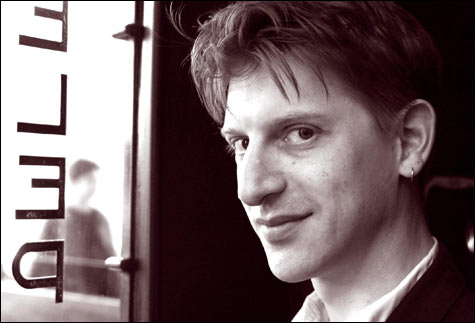
HORROR SHOW At times, Littell’s epic reads like War and Peace as written by the Marquis de Sade. |
| The Kindly Ones | By Jonathan Littell | Translated from the French by Charlotte Mandell | HarperCollins | 992 pages | $29.99 |
Those put off by the soft-pedaling of the SS in the Oscar-nominated movie adaptation of Bernhard Schlink's The Reader might be wary of Jonathan Littell's memoir of fictional war criminal Maximilien Aue. Unlike Schlink's illiterate lackey, Hanna Schmitz, Aue has read everything and is a connoisseur of Bach and the French Baroque. Ana as opposed to Schmitz's utter lack of self-awareness, Aue is a narcissist forever analyzing his inner life as reflected in the greatest crime in human history. Schmitz confronts her accusers by asking, "What would you have done?" Aue responds with another familiar canard: "I am just like you!"So they say. But after 984 pages recounting atrocities that make Jerzy Kosinski's The Painted Bird seem like a month in the country, a personal account of the horrors of the Eastern Front that reads like Warand Peace as written by the Marquis de Sade, I'm still not convinced. On the other hand, I couldn't stop reading. Some complain that Littell's book indulges in exploitive shock effects and pretentiousness. Perhaps. But the effect is hypnotic, as is the effect for Aue of witnessing such abominations as the massacre of 35,000 Jews at Babi Yar in Kiev. "If I could understand it," he muses, "then I'd understand everything and could finally rest."
That understanding never comes, but as part of his job Aue makes an official report so extensively illustrated and nicely bound that it delights Himmler. You see, Aue's not the kind of SS officer who gets his hands dirty killing people (the odd, inept coup de grâce excepted). He's a liaison officer, someone who collects information and makes recommendations. The former range from lists of Jews and Communists to, facetiously, a eugenics plan based on Edgar Rice Burroughs's Mars novels. (Himmler loves that report, too.) He's an observer, not a participant, a voyeur who keeps his distance.
That distance breaks down after Stalingrad, when the tide of war turns and Aue gets banged up and things get a little crazy. Events become hallucinatory, the tone wavers from stark objectivity to surreality and even black comedy, and Aue's reliability as a narrator grows suspect. But his voice is also seductive. Like a Humbert Humbert in the uniform of the Totenkopf Division, he seduces you with his wit and erudition and especially the poetry of his language; they almost blur the depravity of what he's saying.
Not that he can claim reliability to begin with, despite his protests. He confesses his crimes because he feels the Furies of the title at his back, and he tries to build a case, if not for his innocence, then for his humanity. He had a family background that seems scripted by Wagner and Aeschylus, and it turned him into an existentially tormented, nihilistic bi-sexual with a taste for rough trade. Then the Nazi thing happened . . . but all he ever really wanted to do was study literature.